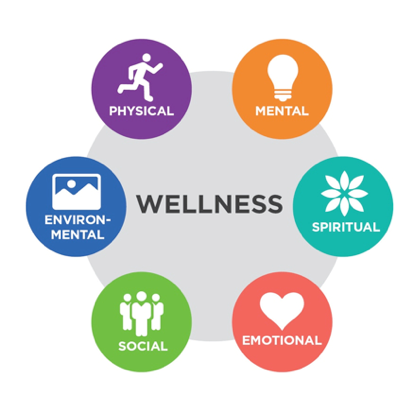In the intricate tapestry of our well-being, emotional health stands as a cornerstone—a delicate yet essential aspect that colors our experiences, interactions, and perceptions. This blog is an exploration of the significance of emotional well-being within the realm of mental health, aiming to shed light on its importance, offering insights, and advocating practices that foster a resilient and balanced emotional state.

Understanding Emotional Well-Being
1. Defining Emotional Health
Explore the essence of emotional well-being, emphasizing its role in managing emotions, resilience, and the ability to navigate life's challenges.
2. Impact on Mental Health
Highlight the profound influence of emotional health on mental well-being, relationships, decision-making, and overall quality of life.
Recognizing Emotions and Self-Awareness
1. Emotional Intelligence
Discuss the significance of emotional intelligence, self-awareness, and the ability to identify, understand, and manage one's own emotions.
2. Coping Strategies
Introduce coping strategies, stress management techniques, and resilience-building exercises to navigate and regulate emotions effectively.
Embracing Positive Emotions and Mindfulness
1. Nurturing Positive Emotions
Encourage fostering positive emotions, gratitude, joy, and optimism, cultivating a positive emotional environment.
2. Mindfulness Practices
Highlight mindfulness techniques, meditation, and practices that aid in cultivating emotional awareness and inner calm.
Healthy Relationships and Emotional Support
1. Communication and Empathy
Discuss the role of effective communication, empathy, and active listening in nurturing healthy relationships and emotional support systems.
2. Seeking Support
Encourage seeking professional help or support networks when needed, breaking the stigma around seeking emotional assistance.
Self-Care and Emotional Well-Being
1. Self-Compassion and Acceptance
Promote self-compassion, self-acceptance, and nurturing a supportive inner dialogue for enhanced emotional resilience.
2. Balancing Life and Stress Management
Offer guidance on stress management, prioritizing self-care activities, and creating boundaries for a balanced emotional state.
Conclusion
Emotional well-being is not a destination but a journey—one that encompasses self-awareness, resilience, and the nurturing of positive emotions. By acknowledging, understanding, and nurturing our emotional health, we pave the way for a more fulfilling, balanced, and resilient mental landscape.







